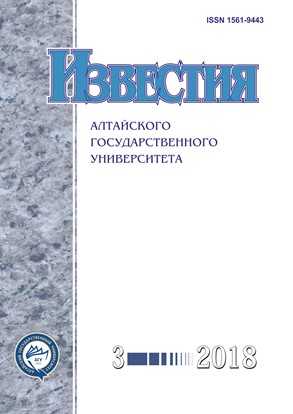The Question of Correlation between Russian Peasantry’s Conception of Customary Law in the Sphere of Criminal Law and the Rules of the Written Criminal Law in Russia in the 19th Century
Abstract
The article analyses the nature of a Russian peasant community as a system forming element in the history of the home state and national law. The phenomenon of crime in the Russian customary law is considered from different points of view. A crime is defined as violation of a rule of the religious law, as an infringement of the God’s rights. Based on the contents of the Decalogue, the article offers the following structure of the “special part” of the customary criminal law in Russia: crimes against faith, crimes against parents’ power, crimes against life, crimes against marriage and family, crimes committed for mercenary motives and crimes against justice. From the point of view of social danger, murder was not in the first line of the crime list. Township courts firmly refused to consider murder cases as those beyond their jurisdiction. The most socially dangerous crime was offence against the Church and faith. The practice of peasant courts determines that a theft committed on account of penury did not come within the definition of a crime. Finally, the article makes a conclusion on the fundamental discrepancy between the system of the written criminal law of the Empire and the Russian peasantry’s conception of customary law in the sphere of criminal law.DOI 10.14258/izvasu(2018)3-01Downloads
Metrics
References
Уложение о наказаниях уголовных и исправительных. — СПб., 1845. [Электронный ресурс]. — URL: http://http://search.rsl.ru/ru/record/ 01002889696 (дата обращения: 09.07.2017).
Иеринг Р. Дух римского права на различных ступенях его развития. — СПб., 1875.
Основы социальной концепции Русской Православной Церкви 2000 г. [Электронный ресурс]. — URL: http://fond-inok.ru/files/socialnaya_koncepciya_rpc.pdf (дата обращения: 19.01.2018).
Труды комиссии по преобразованию волостных судов. — Т.5. Киевская и Екатеринославская губернии. — СПб., 1874.
Дювернуа Н. Источники права и суд в древней России. — М., 1869.
Безгин В.Б. Крестьянский самосуд и семейная расправа (насилие в жизни русской деревни конца XIX — начала XX в.) // Вопросы истории. — 2005. — № 3.
Чудновский С.Л. Очерки народного юридического быта Алтайского горного округа // Русское богатство. — 1894. — № 7, 8.
Труды комиссии по преобразованию волостных судов. — Т.2. Владимирская и Московская губернии. — СПб., 1873.
Труды комиссии по преобразованию волостных судов. — Т.1. Тамбовская губерния. — СПб., 1873.
Фойницкий И.Я. Программа для собирания народных юридических обычаев: уголов. право. — СПб., 1878.
Ефименко А.Я. Исследования народной жизни: обычное право. — М., 2011.
Уголовный кодекс Российской Федерации от 13.06.1996 № 63-ФЗ // Собрание законодательства РФ. —1996. — № 25. — Ст. 2954.
Сорокин В.В. Юридическая ответственность: между буквой закона и духом права. — Барнаул, 2017.
Copyright (c) 2018 И.Н. Васев, К.А. Синкин

This work is licensed under a Creative Commons Attribution 4.0 International License.
Izvestiya of Altai State University is a golden publisher, as we allow self-archiving, but most importantly we are fully transparent about your rights.
Authors may present and discuss their findings ahead of publication: at biological or scientific conferences, on preprint servers, in public databases, and in blogs, wikis, tweets, and other informal communication channels.
Izvestiya of Altai State University allows authors to deposit manuscripts (currently under review or those for intended submission to Izvestiya of Altai State University) in non-commercial, pre-print servers such as ArXiv.
Authors who publish with this journal agree to the following terms:
- Authors retain copyright and grant the journal right of first publication with the work simultaneously licensed under a Creative Commons Attribution License (CC BY 4.0) that allows others to share the work with an acknowledgement of the work's authorship and initial publication in this journal.
- Authors are able to enter into separate, additional contractual arrangements for the non-exclusive distribution of the journal's published version of the work (e.g., post it to an institutional repository or publish it in a book), with an acknowledgement of its initial publication in this journal.
- Authors are permitted and encouraged to post their work online (e.g., in institutional repositories or on their website) prior to and during the submission process, as it can lead to productive exchanges, as well as earlier and greater citation of published work (See The Effect of Open Access).








